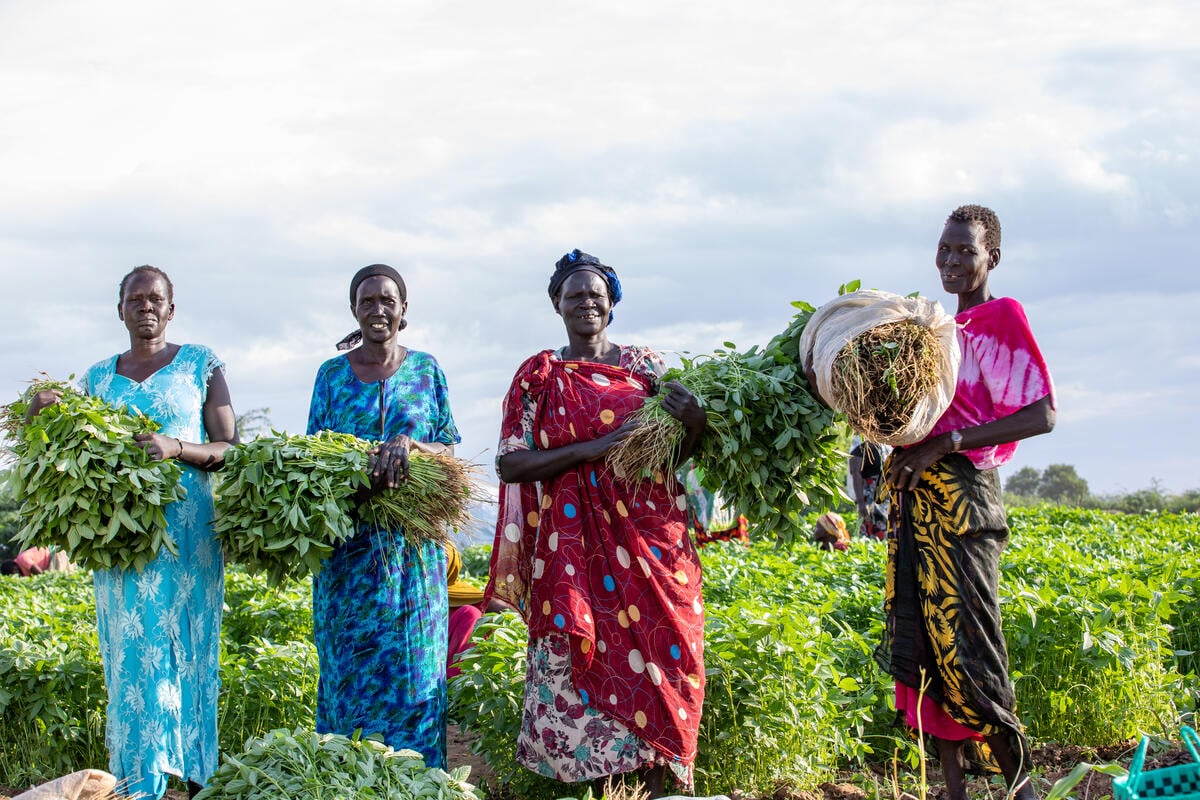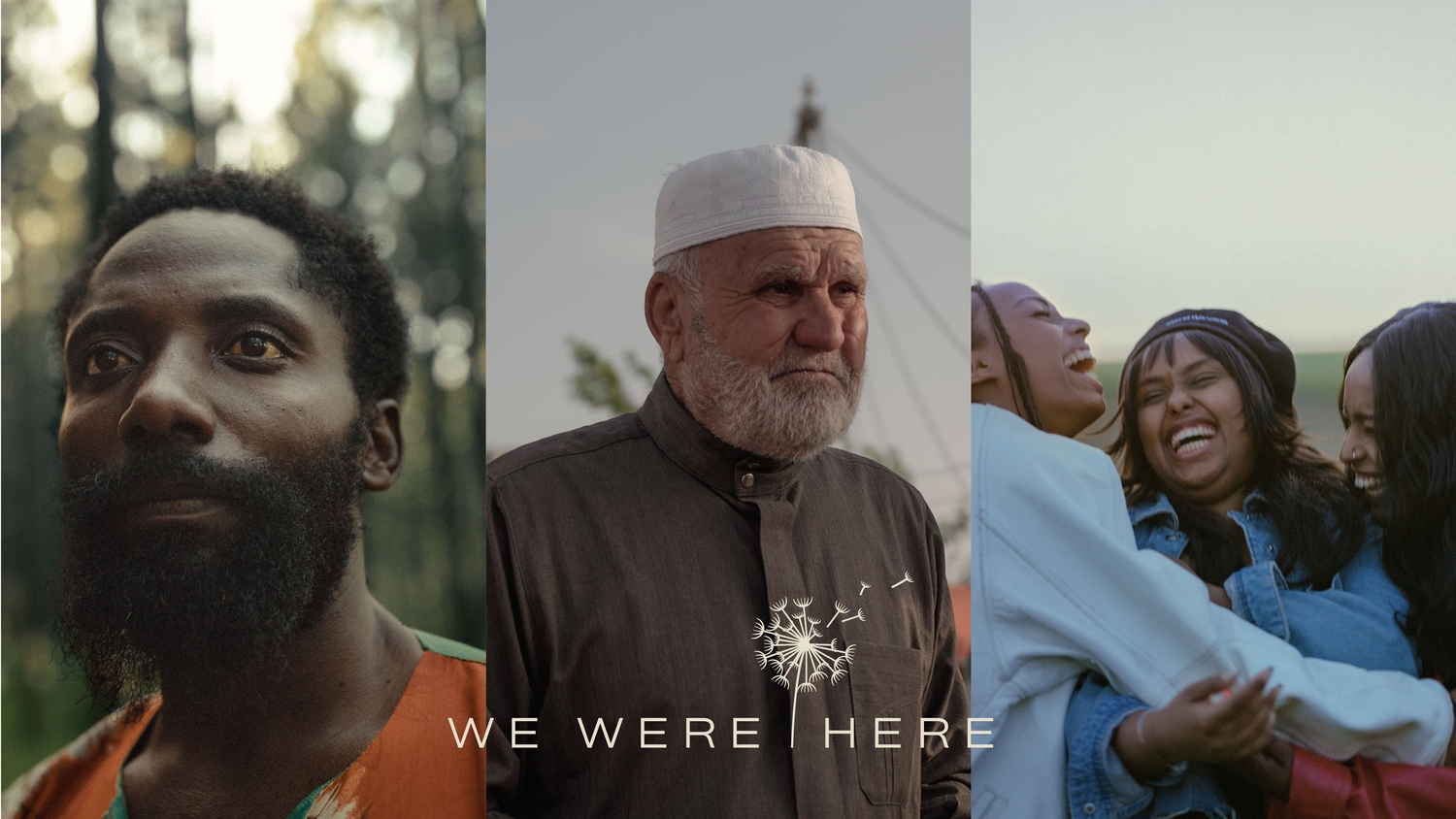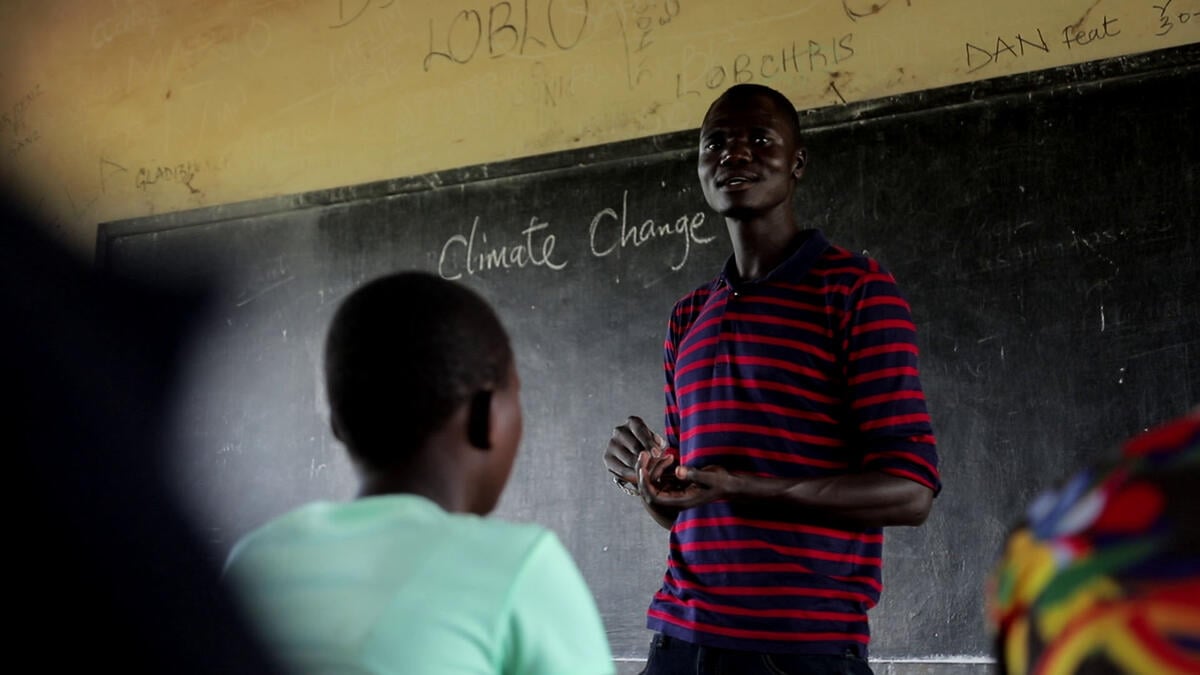Mobile court scheme launched in Uganda's Nakivale refugee settlement
Mobile court scheme launched in Uganda's Nakivale refugee settlement
In Uganda, a pilot mobile court scheme was launched yesterday (Monday, April 15) to improve access to justice for refugees who have been victims of crime.
The project, at the Nakivale settlement in the country's southwest, is being pioneered by UNHCR and the Ugandan government. It aims to benefit some 68,000 refugees and 35,000 Ugandan nationals by providing them with quicker access to justice and legal assistance. This 'mobile' court model is the first of its kind in Uganda.
Our hope is that the mobile courts will speed the rate at which cases are heard, and serve to deter crime by bringing lawyers and a magistrate directly to both refugees and Ugandans in the settlement.
Yesterday's first session was overseen by a Chief Magistrate who heard cases including robbery, land disputes, defilement, attempted murder and cases of sexual and gender-based violence. Subsequent sessions will cover crimes from petty theft to murder.
The courts will hold three sessions a year, each lasting between 15 and 30 days and hearing up to 30 cases per session. Half the cases heard will be those of nationals, who live within the settlement.
Nakivale is Uganda's oldest and largest refugee settlement covering some 180 square kilometres. With the nearest law court currently 50 kilometres away in Kabingo, Isingiro, access to justice has been a real problem for refugees and locals alike. As a result many fail to report crimes and are forced to wait for long periods before their cases are heard in court.
Uganda is home to some 234,150 refugees and is one of very few counties where refugees live in settlements rather than camps. This in itself raises many logistical problems with access to services as refugees are often spread out over large distances.
The Nakivale pilot project is collaboration among UNHCR, the Refugee Law Project, the Uganda Human Rights Council and Ugandan government. Lawyers volunteer their time and services so that the entire process can be provided free of charge to both refugees and nationals. It is hoped to later extend this pilot scheme to other refugee settlements in Uganda so that more refugees can benefit from speedier justice.
We already run similar mobile court initiatives in refugee camps in Kakuma and Dadaab in Kenya, where they have significantly reduced crime within the camps and surrounding areas.
For further information on this topic, please contact:
- In Nairobi (Regional), Kitty McKinsey on mobile +254 735 337 608
- In Mbarara, Lucy Beck on mobile +256 772710137
- In Geneva, Babar Baloch on mobile +41 79 557 9106









